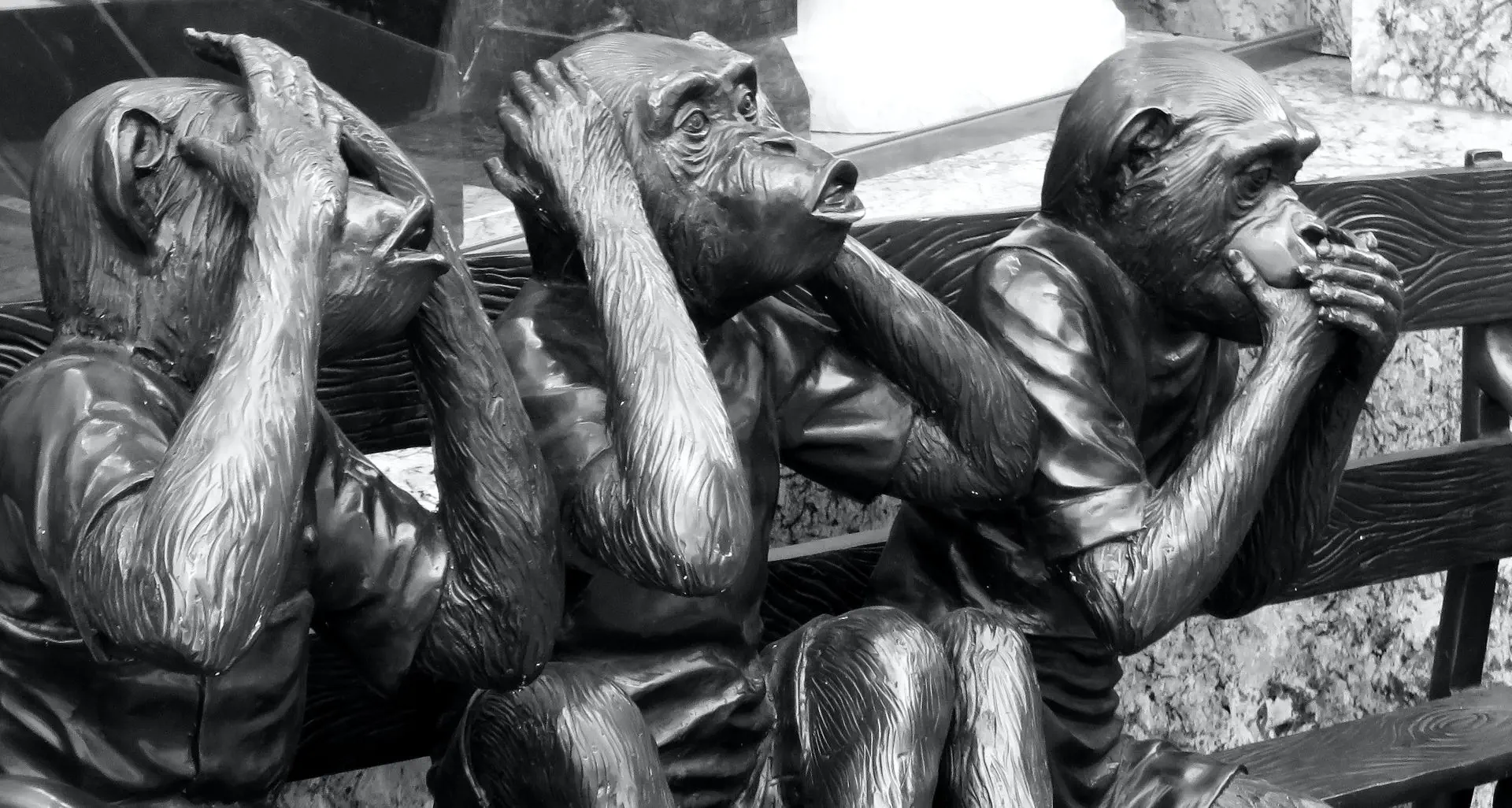The Quest for Truth: Knowledge, Fact, and Transcendence
One of the key tenants of Approved to God is that God is truth and God is knowable and thus truth is also knowable. In the larger world view Truth, Knowledge and Fact are much more malleable. What we seek to do in this essay is examine these concepts from a perspective that incorporates current thinking and philosophy that is not specifically bound to a religious view of these subjects, but seeks to tease out from them why the perspective on these subjects held by those of faith is both intellectually satisfying as it is spiritually accurate.
We must recognize that we live in a world replete with diverse perspectives, rapidly evolving information, and complex societal dynamics. These compel us to have an informed understanding the concepts of knowledge, truth, and fact. These three elements shape our perception of reality, guide our decisions, and underpin the moral and social norms that structure our societies. Grasping their distinctions, interplay, and implications is essential to navigating our individual lives and collective existence.
Moreover, as we grapple with fundamental questions about our existence and the nature of reality, these concepts offer us potential pathways towards answers. From empirical truths that help us understand the physical world, to transcendent truths that explore the metaphysical realm, our quest for truth, guided by knowledge and grounded in fact, faith and logic has profound implications. This exploration not only deepens our understanding but also helps us to make sense of our place in the universe, guiding our actions and shaping our values.
I. Surveying the Landscape of Truth
A. Definition of Key Concepts: Knowledge, Truth, and Fact
Knowledge, truth, and fact form the pillars of philosophical discourse, each with its unique definition and implication. Knowledge refers to the accumulation of information, facts, truths, and principles that are learned or acquired over time. It is the foundation upon which we base our understanding of the world. Knowledge may vary in form and content and can be influenced by our experiences, cultures, beliefs, and the information available to us.
Truth, on the other hand, signifies an accord with reality or fact, a universal agreement beyond personal interpretations. It is often considered to be something that is incontrovertibly ‘correct’ or ‘right’ – an absolute that transcends individual biases or perspectives. While facts are often used synonymously with truth, they indeed differ. Facts are pieces of verifiable information, grounded in empirical evidence. They do not alter with varying beliefs or perspectives.
In our quest for understanding, these three concepts intertwine yet maintain distinct roles. Their interconnectedness shapes our worldview, guides our decisions, and contributes to our search for meaning and purpose.
B. Overview of the Current Debate and Its Relevance
The debate surrounding the nature of truth has persisted across centuries, with interpretations diverging significantly based on philosophical, cultural, religious, and scientific viewpoints. One perspective posits that truth is relative, shaped by our individual experiences, cultures, and belief systems. Others argue for an objective truth, independent of human understanding or interpretation.
Recently, the notion of a transcendent truth, often associated with religious and spiritual beliefs, has re-emerged in discourse. This view posits that truth is not merely a human construct but an absolute reality, perhaps governed or revealed by a divine or morally superior entity.
In an age marked by rapid information exchange and diverging narratives, understanding the nature of truth is more critical than ever. Are we moving towards a more relativistic understanding of truth, or is there a universal, perhaps transcendent truth that anchors our reality? This question forms the nucleus of our inquiry, as we delve into the intricate maze of knowledge, truth, and fact, with a particular interest in exploring the concept of transcendent truth.
II. Differentiating Knowledge, Truth, and Fact
A. Knowledge as Acquired Information
Knowledge forms the backbone of our understanding of the world around us. This understanding stems from our experiences, learning, and exposure to information over time. It is more than an accumulation of facts; it encompasses our interpretation of these facts. Influenced heavily by our beliefs, values, and cognitive biases, knowledge has a subjective aspect to it, underlining the context in which it is acquired.
B. Truth as the Conformity to Reality or Fact
The essence of truth lies in its conformity to reality, fact, or actuality. Various theories seek to explain the nature of truth, but one commonly accepted viewpoint is the correspondence theory. This theory posits that truth is something that exists independently and can be discovered through rational thought and empirical observation. In a more spiritual or transcendent perspective, truth can be seen as an unalterable principle that transcends personal belief or societal constructs.
C. Fact as Verified or Provable Information
Facts stand as unchanging units of information that can be empirically verified and universally proven. A clear example is the boiling point of water at sea level. This assertion remains a fact irrespective of personal perspectives or beliefs. The constancy and provability of facts distinguish them from the fluidity of knowledge and the transcendence of truth.
D. The Interplay and Distinction Among Knowledge, Truth, and Fact
While interconnected, facts, truth, and knowledge hold distinct characteristics. Facts act as the raw data, the unchanging reality. Knowledge uses these facts as building blocks, painting them with individual or collective interpretation. Truth, especially when viewed as transcendent, brings the discussion to a higher level. It introduces the idea of a universal, possibly divine, reality that surpasses individual interpretation and societal construct.

Within this framework, the quest for a transcendent truth emerges—a divine, unalterable reality that provides meaning to facts and shapes our understanding of knowledge. The challenge lies in discerning this truth amidst the multitude of facts and the breadth of knowledge—a daunting yet essential endeavor.
III. The Scope of Truth: From Empirical to Moral
A. Empirical Truths: Factual Assertions and Verifiable Claims
Empirical truths are those grounded in observable and measurable phenomena. They consist of factual assertions and verifiable claims, often serving as the foundational basis of scientific inquiries. An example of empirical truth might be, “The Earth orbits the Sun.” This statement is verifiable through repeated observations and measurements, and it holds true regardless of personal beliefs or perspectives.
B. Moral Truths: Defining our Principles and Norms
On the other end of the spectrum lie moral truths, which define our principles and norms. Unlike empirical truths, moral truths are not easily measurable or verifiable. They delve into questions of what is ‘right,’ ‘just,’ or ‘good,’ which often vary across cultures, societies, and individuals. However, proponents of the transcendent truth perspective argue that these truths, like empirical ones, also originate from a higher, divine source. They propose that moral truths, much like empirical ones, are universal and unchanging, pointing to values such as love, justice, and kindness that seem to be revered across different cultures and times.
C. The Debate: Objective vs Subjective Truths
The discussion of truth inevitably leads to a debate that has engaged philosophers for centuries: Is truth objective or subjective? Objective truth, similar to empirical truth, stands independent of individual feelings and perceptions. It asserts that certain truths hold regardless of our beliefs. In contrast, subjective truth is seen as individual and dependent on personal perspective, akin to our understanding of moral truths. The transcendent truth perspective introduces another layer to this debate, suggesting that both empirical and moral truths might have a singular, divine origin. This view offers a path towards reconciliation of objective and subjective truths, proposing that while our understanding and interpretation may vary, the source of truth itself remains constant and universal.
IV. The Role of Knowledge in the Quest for Truth
A. The Epistemic Role of Knowledge
Knowledge plays a crucial role in our journey towards understanding truth. Serving as our fundamental understanding of the world, it shapes our perspectives and beliefs. It’s through knowledge that we first encounter concepts of truth, both empirical and moral. Knowledge, however, isn’t static. It evolves with time and experience, enabling us to constantly refine and broaden our comprehension of truth.
B. The Limitations of Knowledge in Uncovering Truth
Despite its importance, knowledge has limitations when it comes to fully uncovering truth. While knowledge allows us to comprehend and communicate our understanding of the world, it is often bounded by our individual perspectives, cognitive biases, and societal influences. This limitation is especially apparent when addressing questions of moral truths, which often extend beyond the realm of empirical validation. Therefore, knowledge, while necessary, may not always lead us to a complete understanding of truth.
C. The Debate: Can We Ever ‘Know’ Truth?
This leads us to a longstanding philosophical debate: Can we ever truly ‘know’ truth? Some argue that truth, especially if viewed as an objective or transcendent principle, might be too vast and complex for human comprehension. Others, however, assert that through diligent inquiry, critical thinking, and moral intuition, we can indeed gain access to truth, both empirical and moral.
The transcendent truth perspective suggests that while our understanding may be limited, it doesn’t negate the existence of an absolute truth. Instead, it invites us to be humble seekers, continuously striving to align our knowledge and actions with this higher reality, regardless of our limitations. It’s in this quest that we might find not just knowledge, but wisdom, leading us ever closer to the truth.
V. Religious and Philosophical Perspectives on Transcendent Truth
A. The Concept of Transcendent Truth in Various Religious Traditions
Transcendent truth is an integral part of many religious traditions—seen as a divine, unchanging reality that forms the cornerstone of all existence and wisdom. In the Western Christian tradition, this concept is particularly emphasized. The idea of transcendent truth is embodied in the figure of God, whose revelations, presented in the Bible, provide divine wisdom and laws for humanity. In Christianity, this transcendent truth manifests as absolute moral and spiritual guidance, providing a foundation for believers’ worldviews and life choices.
While monotheistic religions such as Judaism and Islam also subscribe to the concept of a transcendent truth, they express it in distinct ways based on their unique theological frameworks and sacred scriptures. Eastern traditions like Buddhism and Hinduism likewise engage with the idea of a transcendent reality. In Buddhism, it’s often related to the concept of Dharma, while in Hinduism, it’s associated with Brahman. However, their interpretations diverge significantly from the Christian perspective, as they involve different cosmological views and spiritual practices.
Regardless of these differences, a fundamental aspect unites these diverse traditions: a belief in a higher truth that goes beyond our ephemeral, earthly existence. However, in the context of the Christian faith, this transcendent truth takes on a specific form and significance, aligning with the teachings and traditions of the Western Christian God.
B. Philosophical Perspectives: Platonism, Existentialism, Postmodernism, etc.
Different philosophical schools of thought have also grappled with the concept of transcendent truth. Platonism, for instance, posits the existence of ‘forms’ or ideal truths that exist beyond our physical world. Existentialism, on the other hand, places the individual’s experience at the center of understanding truth. Postmodernism takes a more skeptical view, often rejecting the notion of an absolute, singular truth in favor of multiple, relative truths.
C. The Challenges, Controversies, and Potential Resolutions Surrounding Transcendent Truth
Navigating the concept of transcendent truth indeed presents a unique set of challenges and controversies. The question of empirical verification is a prominent one—how do we validate something inherently beyond our physical and sensory grasp? However, within the Christian tradition, a solution is proposed through faith, personal spiritual experience, and the revelations of God in nature. The Apostle Paul in his letter to the Romans (Romans 1:18-21) suggests that the truths about God are evident in the natural world, making humanity without excuse for disbelief. Therefore, Christians perceive the transcendent truth of God not only through spiritual insights but also through observing and appreciating the intricacies of the world around them.
Interpretational discrepancies of transcendent truth across different cultures and religions also pose a challenge. Does the existence of various ‘absolute truths’ negate the concept of a singular, transcendent truth? From a Christian perspective, it is believed that there is one universal truth revealed through the life, teachings, death, and resurrection of Jesus Christ. While acknowledging the presence of other belief systems, it maintains that the most complete expression of transcendent truth is encapsulated in the person of Christ.

Moreover, the concept of transcendent truth might conflict with relativistic perspectives, thus fueling debates about truth’s nature, the role of individual perception, and the legitimacy of universal principles. Christianity navigates this by emphasizing the constancy of God’s character and His truth as absolute, offering a steady anchor amidst ever-changing societal norms and subjective perceptions. Regardless of these hurdles, the pursuit of transcendent truth is a vital endeavor, particularly in the Christian faith. It encourages believers to look beyond the immediacy of their circumstances, aspiring to a communion with a higher, unifying principle—the universal and absolute truth of God.
VI. Truth as a Guiding Principle: Individual and Societal Implications
A. The Role of Truth in Shaping Moral and Social Norms
Truth plays a crucial role in the formation of our moral and social norms. Our understanding of what is ‘right,’ ‘good,’ or ‘just’ is often founded on truths we perceive, guiding our actions and interactions. These truths become shared principles that societies adhere to in order to maintain order and harmony. They establish acceptable behavior, encourage cooperation, and deter actions that may harm others. Interestingly, if one delves deeper into the root of these truths, we find they are often linked to a higher, more universal source—perhaps indicating the influence of a transcendent truth.
B. The Impact of Perceived Truth on Decision Making and Behavior
The truth as we perceive it has a profound impact on our decisions and behavior. When we hold something to be true, we naturally act in line with that belief. This applies to various aspects of life, from personal decisions such as dietary choices based on health truths to societal actions like voting, influenced by political truths. Our alignment of actions with our perception of truth brings about consistency in our lives, which contributes to a sense of purpose and meaning. Interestingly, one might ponder whether this sense of coherence and purpose comes from our alignment not just with everyday truths, but perhaps, with a more profound, transcendent truth.
C. Truth in the Era of Information Overload and ‘Post-Truth’
We live in an era characterized by a deluge of information and, paradoxically, a rising discourse around ‘post-truth.’ This notion refers to circumstances where public opinion is swayed more by personal beliefs and emotions rather than objective facts. In this environment, the pursuit of truth gains paramount importance. Being able to distinguish fact from fiction, objective truth from subjective interpretation, becomes an essential skill. As we sail through the turbulent waters of information overload, the need for a beacon, a steadying principle, grows ever more salient. Perhaps the answer lies in a truth that transcends the ephemeral nature of our information age—a transcendent truth, rooted in something more eternal like God. This compass could provide a guiding force, helping us navigate the ceaseless waves of information and offering a stable foundation amidst the ever-evolving landscape of truth.
VII. Conclusion
A. Summary of Key Points and Insights
Our exploration of knowledge, truth, and fact, and their interplay, paints a complex but fascinating picture. Knowledge, gleaned from experience and learning, shapes our interpretation of reality, while facts stand as unchanging kernels of provable information. Truth, especially when considered in the light of transcendence, rises above individual interpretations and societal constructs, hinting at a reality that might be divine and unalterable. The broad scope of truth, stretching from empirical to moral, reflects in our factual assertions as well as in our guiding principles and norms, perhaps hinting at a deeper, transcendent influence.
B. Open-ended Questions and Areas for Further Research
Numerous open-ended questions persist, opening avenues for further research. How might we empirically confirm the existence of a transcendent truth? Can we reconcile the varying interpretations of such a transcendent truth across different cultures and religions? And how do we chart a course through a ‘post-truth’ era while maintaining sight of the bedrock principles of truth? The pursuit of answers to these questions may yield deeper insights into our understanding of truth, its role in our lives, and perhaps its connection to a higher, more universal source.
C. Reflection on the Ongoing Quest for Truth
The quest for truth, as our journey has shown, is an enduring endeavor. It encourages introspection, critical thinking, and open-mindedness. This quest invites us to refine continually our understanding, question our assumptions, and seek alignment with a reality that might be beyond our immediate sensory experience. As we navigate this quest, we may discover more than a guiding principle; we might gain wisdom and a deeper understanding of ourselves and the world. This pursuit, encompassing both empirical and moral truth, is an integral part of our individual and collective growth. In essence, it’s a testament to our shared desire to understand, seek meaning, and perhaps, to connect with a reality that transcends our own – a reality that is constant, unchanging, and independent of man.




